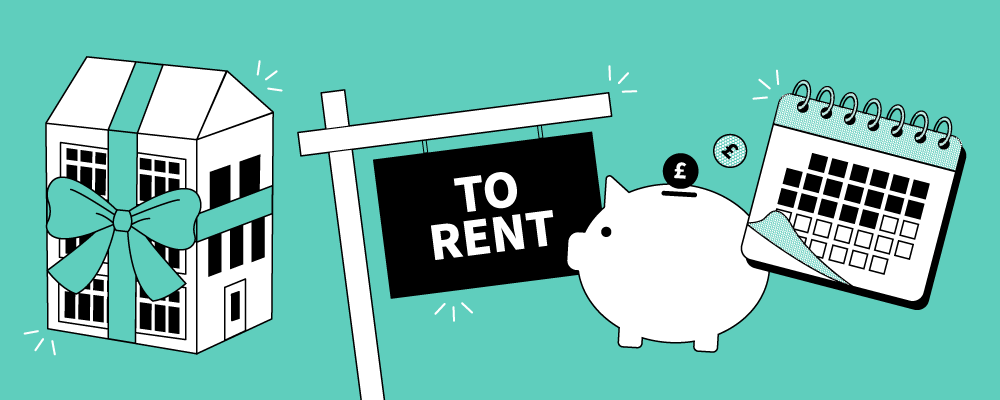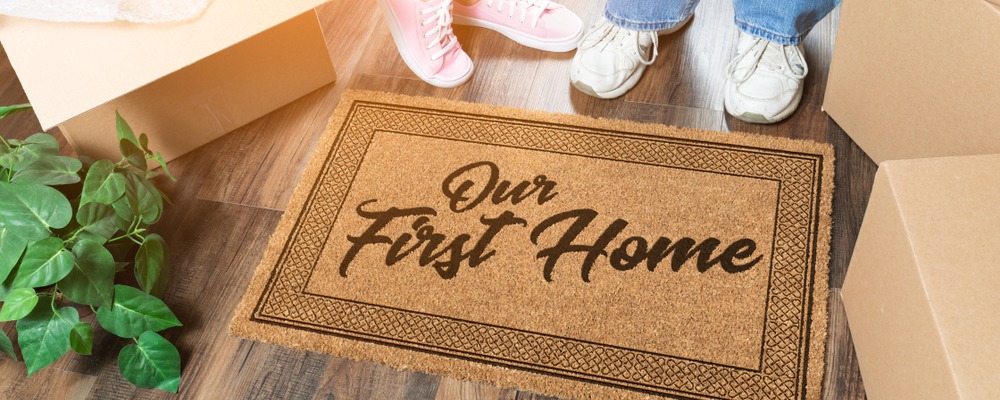
Key Takeaways
1. Deposit: The initial lump sum that goes toward the home purchase. For first-time buyers in London, the average deposit is £90,000 (16% of the total home cost). A larger deposit means lower mortgage borrowing and potentially better interest rates.
2. Mortgage: The long-term loan you borrow from a lender, based on the home’s cost, your deposit, and interest rates. Explore different mortgage types (e.g., fixed rate, variable rate) and use mortgage calculators for estimates.
3. Conveyancing and Surveys: Factor in legal costs (conveyancing) and property surveys. For new builds, a snagging survey typically costs between £300 and £600.
4. Stamp Duty: If your home costs over £125,000, you’ll pay Stamp Duty. First-time buyers get reduced rates for properties under £500,000. Use an online Stamp Duty calculator to estimate the amount.
5. Cost-Saving Tips:
- Save a larger deposit.
- Shop around for mortgages.
- Seek solicitor recommendations.
- Choose the right property survey.
- Consider adjusting your budget to save on Stamp Duty.
Whether you’re stepping onto the property ladder for the first time or settling into a new place, buying a home is an exciting step. However, with so many costs to consider, the process can feel overwhelming.
This guide explains the costs of buying a new home to help you plan and manage your budget more effectively.
Understanding the upfront costs of buying a new home
Your deposit typically represents the largest upfront cost. While most lenders accept deposits as low as 5%, aiming for 10-20% can secure better mortgage rates and reduce monthly payments. If you're considering a new build property, use a new homes mortgage calculator to estimate the costs involved in purchasing this type of property.
Beyond your deposit, budget for additional expenses such as mortgage arrangement fees, conveyancing costs, property surveys and Stamp Duty Land Tax.
Mortgage fees and how they can impact your budget
Mortgage fees can significantly affect your budget, but many first time buyers underestimate these costs. Knowing these charges can help you make informed decisions throughout your homebuying journey.
- Mortgage arrangement fees – most lenders charge £1,000–£2,000 to set up your mortgage. You can usually add this to your mortgage, but it will increase your monthly repayments.
- Valuation fees - valuing your home to ensure it’s worth the amount you’re borrowing will usually cost you between £300-£600, depending on the property’s estimated value.
- Broker fees – although most brokers earn a commission from lenders, some will charge you a fee. This typically costs around £500.
- Reservation fees – if you’re buying a new build, a reservation fee secures the property, removing it from the market during conveyancing and mortgage processes. This fee usually ranges from £500-£1,000 and is typically deducted from the final purchase price.
Legal and conveyancing costs explained
Conveyancing, or the legal side of buying a home, involves solicitor fees and disbursements, which are payments to third parties for essential checks and services.
Solicitor’s fees cover services such as reviewing and exchanging contracts, dealing with the seller’s solicitor and legal advice. These usually cost £1,200-£1,500.
Disbursements, often paid by a solicitor on your behalf, can include:
- Search fees – cover legal checks that ensure there are no legal, environmental, or planning issues with the property or land. Depending on location and required searches, these usually cost £200-£500.
- Land registration fee – the cost to register the property in your name with the Land Registry depends on the type and value. Visit GOV.UK to check your property's price band.
- ID verification fee – to comply with anti-money laundering laws, your solicitor will verify your ID through secure electronic checks, costing £6-£25.
- Bank transfer fees – for large payments, your solicitor arranges the transfer and passes on the bank’s charge, usually £20-£50 per payment.
Stamp Duty
Stamp Duty Land Tax applies to properties over £125,000. First time buyers may qualify for relief on homes up to £500,000.
Stamp Duty rates are calculated in bands:
- 0% on the first £125,000
- 2% on the portion from £125,001 to £250,000
- 5% on the portion from £250,001 to £925,000
- 10% on the portion from £925,001 to £1.5 million
- 12% on amounts above £1.5 million
Read our guide on Stamp Duty to learn more. You can also use the Stamp Duty Calculator to estimate your tax.
Property surveys and inspections
Professional surveys can protect your investment by uncovering issues before completion. They increase upfront costs but can lead to significant savings on repairs.
You can choose between three types of surveys:
- RICS Level 1 Home Survey – this is the simplest and least expensive option, giving a broad overview of the property’s condition. Prices usually range between £300-£900.
- RICS Level 2 Home Survey – a common choice for modern homes or properties in good condition. It includes all Level 1 checks plus roof and cellar inspections, and highlights issues like subsidence, when the ground beneath a property sinks. This can cost £400-£1000.
- RICS Level 3 Home Survey – the most detailed option, this provides a comprehensive look at the property’s structure. It's often recommended for older properties (over 50 years) or those needing major work. Costs are usually between £630-£1,500.
Moving costs and other expenses to budget for
Professional removal services typically cost £300-£500, depending on property size, distance and additional services like packing. It's worth obtaining multiple quotes to find the most suitable option for your budget.
Schemes and offers
Government and industry schemes can reduce your buying costs and make homeownership more accessible. Knowing your options can help you access available support:
- Shared Ownership – buy a share of your home while paying subsidised rent on the remainder. This reduces both your deposit requirement and monthly mortgage payments, making it easier to get onto the property ladder.
- First Homes – offers 30% to 50% discounts on new build properties for eligible first time buyers.
- Developer and builder schemes – some developers offer part exchange deals where they buy your existing home, or deposit contribution schemes that reduce your upfront costs. Read more about Barratt London’s various offers to help make your home purchase more accessible.
Tips for first time buyers to manage costs
Managing buying costs effectively requires careful planning. These practical tips help first-time buyers navigate the process while keeping expenses under control:
- Start saving early – Consider all costs, not just your deposit. Aim to save 10% to 15% of your intended purchase price to cover all associated expenses. This prevents last-minute financial stress and gives you more negotiating power.
- Get multiple quotes – for services like surveys, conveyancing and removals. Prices can vary significantly between providers, so shopping around often saves hundreds of pounds without compromising on quality or service.
- Use comparison tools and calculators – mortgage calculators help compare different mortgage deals, while affordability calculators ensure you're looking at properties within your realistic budget range.
- Consider the timing of your purchase – buying during quieter periods might offer more negotiating opportunities, while planning your move date can help avoid peak season charges for removal services.
Ready to make your move? Discover our range of modern homes and flats in London.
Call our Sales Advisers today and become a homeowner with Barratt London.


